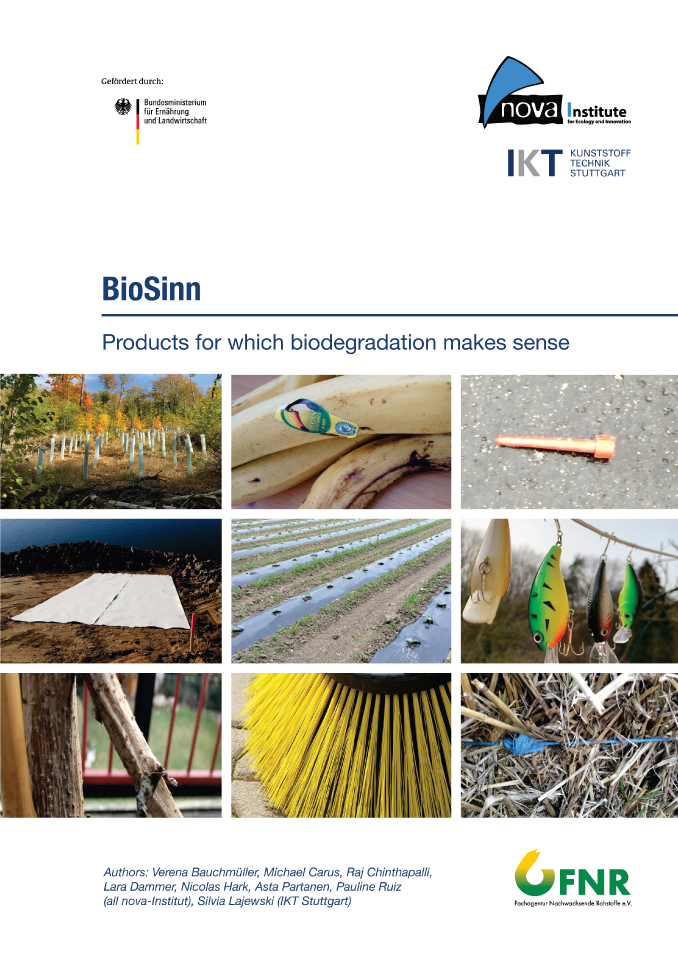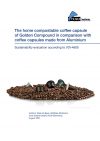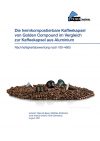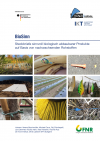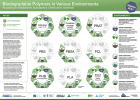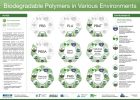BioSinn – Products for which biodegradation makes sense (PDF)
FREE
In the project “BioSinn – Products for which biodegradation makes sense”, which was funded by the Federal Ministry of Food and Agriculture (funding code 2219NR197), experts from the nova-Institute in Hürth near Cologne investigated whether there are applications and products for which biodegradation is a sensible or even the best end-of-life option. The selection criteria were that collecting the products (or their remaining parts), separating them from other organic waste or material recycling is not possible, economically not feasible or does not take place in practice. Further criteria were that the input of microplastics into the environment can be avoided through the use of biodegradable materials or that indirect positive effects, a relevant secondary benefit, can be achieved through the use of biodegradable materials.
The result of the project is a brochure for decision-makers from industry and politics but also for the general public, with 25 fact sheets and extensive background information on biodegradation. For each product, it explains to what extent biodegradation is a sensible and feasible option and what technical substitution options are available for a more sustainable use of materials. In addition, political framework conditions and regulations were highlighted and evaluated on a product-specific basis. For the first time, the market volumes for Germany and the EU were also surveyed and estimated. The total volume of the 25 applications in Germany is about 170,000 tonnes and in the European Union even about 1 million tonnes, of which the largest share ends up in the environment. Here, the use of biodegradable materials would bring considerable environmental benefits.

